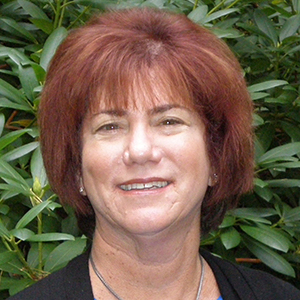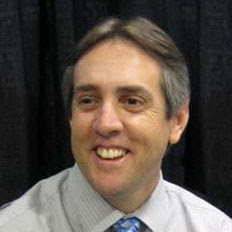Thursday, November 17
8:15 am – 12:15 pm
Fee: $189 (Add $25, if not attending the conference.)


1. Teaching Digital and Civic Citizens
Part 1: Helping Students Become Safe, Savvy and Social
The first part of this workshop will focus on digital citizenship and will provide you with resources on helping students understand the issues around technology use in schools from a digital citizenship perspective, as well as to construct civic and social literacy in the classroom. The objective is to have teachers begin the process on how to develop integration plans for new technologies, and how to respond to new situations related to technologies as they emerge in their schools and classrooms. After this session educators should have a better understanding of how to work with students in a classroom setting on various digital citizenship topics.
Mike Ribble, EdD, Educational Technology Consultant; Director of Technology for a school district in Kansas; Blogger and Creator, DigitalCitizenship.net; Author, Raising a Digital Child: A Digital Citizenship Handbook for Parents (2009); Co-Author, Digital Citizenship in Schools (2011, 2nd edition)
Part 2: Tackling Today's Civic Problems with Youth
How can youth meaningfully address authentic civic problems such as those related to racism, our environment, and community health in school and in out-of-school programs? This workshop will support educators to construct opportunities for youth to (1) name, (2) study, and (3) act on social problems while developing essential literacy skills. After exploring how these three steps can unfold, and learning from multiple examples at the upper-elementary, middle, and high school levels, participants will leave the session skilled to design and enact civic literacy projects.
Shira Eve Epstein, EdD, Associate Professor of Secondary Education, The City College of New York (CUNY); Author, Teaching Civic Literacy Projects: Student Engagement with Social Problems (2014) and articles in journals including Language Arts, The Journal of Social Studies Research, Journal of Teacher Education and Race, Ethnicity and Education

2. Neuroscience and Student Empowerment: Fostering Student Ownership of Mastery Learning in the 21st Century
This workshop will provide you with an overview of what constitutes student empowerment and student ownership in a 21st Century classroom. Providing a standards-based, proficiency- based system along with mastery learning enables student empowerment. Patti Drapeau will translate neuroscience findings into a pedagogical framework that articulates a step-by-step “how to” that shfts instructional practice to one that encourages student ownership. Topics include: social aspects of neuroscience; student voice and choice; mastery learning in the contemporary classroom; and examples of school structures that foster student empowerment.
Patti Drapeau, MS, Educational Consultant; President, Patti Drapeau Educational Consulting; Part-time Faculty, University of Southern Maine; Author, Sparking Student Creativity: Practical Ways to Promote Innovative Thinking and Problem Solving (2014), Differentiating with Graphic Organizers: Tools to Promote Critical and Creative Thinking (2008) and Differentiated Instruction: Making It Work (2004)


3. Teaching Teenage Brains: Fostering Reasoning, Critical Thinking and Grit
Learn how to teach the skills adolescents need to be successful. In this two-part workshop, you will learn how to improve teen grit, self-control, mindsets, thinking, reasoning and learning in classrooms. Dr. Gamino will share evidence from her research on the SMART (Strategic Memory Advanced Reasoning Training) cognitive training project in schools from several states and show you ways to teach reasoning skills to teens. Dr. Baruch-Feldman will show how teens can change their mindset and their behavior in ways that support self-control, perseverance and tenacity. Explore how to help develop the self-control and thinking skills required for success.
Jacquelyn F. Gamino, PhD, Cognitive Neuroscientist; Assistant Research Professor; Director, Adolescent Reasoning Initiative, Center for BrainHealth, The University of Texas at Dallas; Co-Author, “Enhancing Inferential Abilities in Adolescence: New Hope for Students in Poverty” (2014 Frontiers in Human Neuroscience), “Inhibitory Control Gains from Higher-Order Cognitive Strategy Training” (2014, Brain & Cognition) and “Higher Order Strategic Gist Reasoning in Adolescence” (2011, The Adolescent Brain), et al.
Caren-Baruch-Feldman, PhD, Clinical Psychologist; Certified School Psychologist; Author, The Grit Guide for Teens: A Workbook to Help You Build Perseverance, Self-Control, and a Growth Mindset (2017)

4. Battling Boredom to Engage and Motivate
Dr. Harris will describe the relationship between boredom, engagement and behavior. He will address issues related to authentic engagement vs. compliance and will consider the brain and cognitive processes involved in boredom, attention and authentic engagement. You will be provided with several practical, relevant and easy-to-use strategies that have been proven to engage and motivate students.
Bryan Harris, EdD, Director of Professional Development and Public Relations, Casa Grande Elementary School District; Educational Consultant; Author, Creating a Classroom Culture That Supports the Common Core: Teaching Questioning, Conversation Techniques and Other Essential Skills (2013) and Battling Boredom (2010); Co-Author, 75 Quick and Easy Solutions to Common Classroom Disruptions (2012)


5. The Neuroscience/ Neuropsychology of Reading Ability and Disability
This two-part workshop for educators and clinicians will examine reading from a neuroscience and neuroeducational perspective, including understanding neural difference between good and poor readers, identifying those that can benefit from early intervention, and ways to classify developmental reading disorders into four distinct subtypes. Over the past decade, neuroimaging studies have revealed differences in brain structure and function between individuals who do or do not have difficulty in reading, and also structural and functional plasticity associated with effective intervention programs. Dr. John Gabrieli will discuss the use of brain measures to predict the trajectory of reading difficulty, including appropriate diagnostic criteria and identification of children at risk for reading failure prior to reading instruction. Dr. Feifer will discuss matching each reading subtype with evidence-based interventions. He will discuss the use of neuropsychological assessment to address multiple cognitive constructs, including phonological processing, working memory, executive functioning and orthographical processing.
John D.E. Gabrieli, PhD, Grover Hermann Professor in Health Sciences and Technology; Professor of Brain and Cognitive Sciences; Co-Director, Clinical Research Center; Associate Director, Athinoula A. Martinos Imaging Center, McGovern Institute for Brain Research, Massachusetts Institute of Technology; Co-Author, "Relation of White-Matter Microstructure to Reading Ability and Disability in Beginning Readers" (2016, Neuropsychology), "Impact of Intensive Summer Reading Intervention for Children With Reading Disabilities and Difficulties in Early Elementary School" (2015, Learning Disabilities)
Steven G. Feifer, EdD, NCSP, Diplomat in School Neuropsychology; Faculty Instructor, American Board of School Neuropsychology; Licensed Psychologist, Monocacy Neurodevelopmental Center; Co-Author, Feifer Assessment of Reading - FAR™ (2016), Integrating RTI With Cognitive Neuropsychology (2007), The Neuropsychology of Mathematics (2005) and The Neuropsychology of Reading Disorders: Diagnosis & Intervention (2000)


6. The Educators’ Guide to Brain Research: How to Responsibly Bridge the Gap Between Research and Practice
Learn how to navigate the facts and findings of neuroscience and psychological research in an era when the quality of scientific content that educators come across varies dramatically. This workshop, through lecture, self-reflection and group discussion, is designed to prepare educators to strategically evaluate scientific claims and make informed decisions about the value they may bring to their personal and professional decision making. You will be presented with new ideas and content that is foundational to fostering key scientific literacy skills. You will learn to navigate common misconceptions and challenges related to applying science to the real world, how to develop skills for critically assessing the merits of "brain-based" applications or policies and be introduced to practical resources for sustainably and responsibly engaging with scientific findings.
Andrew C. Watson, MEd, Founder and President, Translate the Brain; Former Dean of Faculty, The Loomis Chaffee School; Named “2011 Teacher of the Year” by Loomis Chaffee Student Council, and
Maya Bialik, MEd, Researcher, Center for Curriculum Redesign; Associate Director, The People’s Science; Co-Author, Four-Dimensional Education: The Competencies Learners Need to Succeed (2015)











